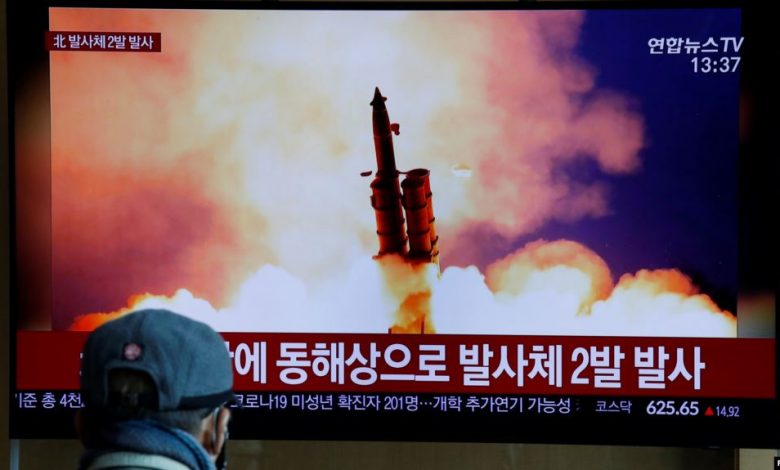In an interview with the website of the Strategic Council on Foreign Relations, Behrouz Ayaz pointed to North Korea’s offensive strategy in the face of US threats: “With the end of the one-year deadline and Washington’s lack of serious response to the sanctions, Pyongyang spoke of “Christmas gift” in early December by which it meant testing Intercontinental ballistic missile.”
Ayaz added that Mr Kim said at a meeting in late December that he had lost hope in diplomacy with Washington and that his country no longer felt restricted in testing nuclear weapons and long-range ballistic missiles.
North Korea Realizes the US Not Serious in Negotiations
The Asia-Pacific affairs analyst recalled three official meetings between North Korean and US leaders and said: North Korea has realized that the United States was not serious in the talks. With Pyongyang trying to achieve a definite outcome and a lack of proper response from the United States, North Korea has become increasingly distrustful of the United States and the negotiation table, and Pyongyang also considers diplomacy an ineffective way to restore peace.
He believed Washington’s lack of concentration in the talks on the one hand and widespread UN and US sanctions, on the other hand, were the reason for North Korea to continue its military exercises that began in late November 2019 and continued on February 28 and early March in a serious response to the United States. As of March 1, North Korea launched two short-range projectiles on its east coast. On March 9 also it carried out the third test of three short-range ballistic missiles, and on March 21, it tested two short-range ballistic missiles.
Ineffectiveness of Sanctions & Negotiations
Referring to the UN report that said North Korea had carried out 13 missile tests in 2019 and launched at least 25 missiles, including new types of short-range and ballistic missiles, emphasizing that North Korea’s distrust of the United States caused the ineffectiveness of the US sanctions and pressure as well as diplomatic tools and negotiations. In response to this lack of confidence and sanctions, Pyongyang exported more than last year in addition to extensive missile tests.
North Korea has bypassed US and UN sanctions by exporting coal and sand to Chinese companies and by importing oil, armoured vehicles, etc. the Asian affairs expert added. Between January and August 2019, North Korea exported coal worth about $370 million. It has exported at least one million tons of sand worth at least $22 million to Chinese ports. With North Korea’s annual oil imports set at 500,000 barrels per year in 2017, Pyongyang’s imported oil was reported to be much larger than expected between January 1 and October last year.
Ineffectiveness of Trump Administration Pressure on North Korea
“All this shows that the Trump administration’s pressure on North Korea has not been effective and that the only real power and effective pressure, namely the sanctions has lost its effect,” he said. That is why North Korea continues its missile tests.
Ayaz also said about the prospects for future relations and talks between the two countries: “The United States has no resolve to settle the Korean crisis and has signed no agreement with North Korea. Even if the two sides reach agreement there will be no guarantee on its implementation; North Korea is well aware of this point.”
He explained that lifting the sanctions, reducing US military presence in Southeast Asia and removing nuclear parasols from South Korea and Japan are the most important Pyongyang demands that Washington is unwilling to implement. Washington seeks to disarm Pyongyang but North Korea not only has a different definition of disarmament but also with the experience of previous Washington negotiations and agreements with other countries, has taken a careful look at this matter and will not disarm before any serious US verification action.
The Asia-Pacific affairs analyst said that reducing US military presence and withdrawing nuclear umbrella from Seoul and Tokyo would not be acceptable to the US, South Korea and Japan either but most importantly, it is indispensable for the control of its main competitor, China.
“The disregard of the United States and Trump for the negotiations with Pyongyang and its unwillingness to resolve the Korean crisis, therefore, has little to do with the upcoming US election,” he said. It is also about America’s unwillingness to accept Pyongyang’s demands, as well as the US long-term strategy in the East Asian region in line with the long-term program of controlling China.
In other words, China is surrounded by powers all of which are allied with the United States. China has been trying to reduce Washington’s presence in the region by using its ally, North Korea, Ayaz said. Therefore, part of the resolution of the Korean crisis can be attributed to the major powers’ game in the region. Given the importance of the region and the widespread US interest in Pyongyang’s significant demand to reduce US bases and troops and remove the nuclear umbrella from Seoul and Tokyo, the problems of the two countries are expected to remain unsolved.
He said: “Unless China-US disputes and Japan-South Korea differences with China and North Korea are resolved in the East Asian region, the Korean crisis will continue to exist and provide an opportunity for North Korea in the future to get closer to nuclear weapons, missiles, and advanced military technology. North Korea’s missile tests are expected to continue, which could make the security of the East Asian region more fragile and render this crisis more inextricable.










0 Comments